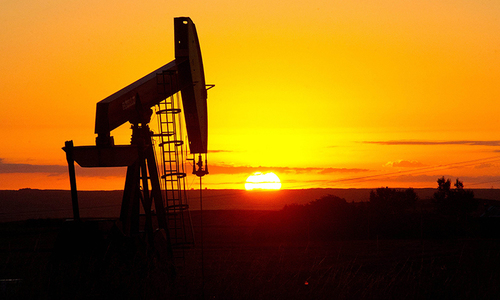A lot is happening. Fireworks are all around the ‘crude’ scene. Yet, and, this is a big yet: oil markets continue to remain unfazed.
Saudi oilfields are on the firing line. They are being targeted, by land, air, and sea. A drone attack by the Yemeni Houthis last week caused fire at one of the oil and gas fields in Saudi Arabia. The Saudi Energy Minister Khalid al-Falih later underlined the damage caused by the explosive-laden drones was limited to a processing unit of the natural gas processing plant at the Shaybah field, bordering the United Arab Emirates.
Houthis had earlier said they were using 10 drones to attack the Shaybah field in what they said was the “biggest attack in the depths” of Saudi Arabia. The attack definitely indicated the beginning of a new phase in the ongoing Yemen war.
The Shaybah field lies about 600 miles from the Houthi-controlled parts of Yemen. The attacks on Shaybah fields indicate that Houthis now have the capacity to target deep inside the Saudi peninsula. This is a new development and indeed not a good omen for the Saudi oil output.
Al-Falih told the Saudi Press Agency: “These attacks not only target Saudi Arabia, but also the global energy security of supply and through that the global economy, demonstrating once again the imperative for the global community to confront all terrorist entities that carry out such acts of sabotage, including the Houthi militias in Yemen.”
However, this was not the first attack on Saudi oil and gas infrastructure by the Iran-affiliated Houthi rebels. Earlier this year, the group said it had a list of 300 military targets in Saudi Arabia and the UAE, including oil and gas infrastructure.
In the meantime, the US sanctions on Iran have effectively taken nearly 2.7 million barrels per day out of the market, US Secretary of State Mike Pompeo said last week.
He underlined the US government was confident it could continue with its maximum pressure campaign on Iran that has stifled the country’s oil exports.
Besides, the rising threat to Saudi oil infrastructure and dwindling crude exports from Iran and Venezuela, oil tankers passing through the strategically crucial straits of Hormuz are also facing serious challenges. A tit-for-tat scenario had emerged between Iran and the US on the issue.
The threat to block shipments through the Straits only seems to be growing. Iranian senior leaders are now warning if Iran’s oil exports are cut to zero, as the US appears determined to do so, international waterways will not have the same security as before.
Iran’s President Hassan Rouhani cautioned Washington against raising pressure on Tehran. “World powers know that in the case oil is completely sanctioned and Iran’s oil exports are brought down to zero, international waterways can’t have the same security as before,” Rouhani said while meeting Iranian Supreme Leader Ayatollah Ali Khamenei. “So unilateral pressure against Iran can’t be to their advantage and won’t guarantee their security in the region and the world,” he underlined.
Rouhani warnings coincided with a remark made by Iran’s Foreign Minister Mohammad Javad Zarif that Tehran might act “unpredictably” in response to “unpredictable” US policies under President Donald Trump. In a speech at the Stockholm International Peace Research Institute (SIPRI), Zarif appeared to echo Rouhani’s tone.
Reiterating the message, Iran’s Rear Admiral Ali Fadavi, a deputy commander of the elite Revolutionary Guards, said no one can secure the gulf other than Iran and countries of the region, the semi-official Iranian Fars News Agency quoted him as saying. “Securing the Persian Gulf is the responsibility of Iran and the countries of the region,” Fadavi said. “Other than us, no one can secure the Persian Gulf.”
The markets, however, appear disconnected with all these events. They are more focussed on the health of global economy.
The ongoing trade war between China and the US is the main driver in the market these days. One of the big reasons for the jump in oil prices, early last week, stemmed from the news that the US government extended waivers on sanctions for companies doing business with Chinese telecom giant Huawei. However, prices plunged Friday, once China announced levying five per cent tariffs on the US oil.
The US embargo on Iran and Venezuela and the ongoing skirmishes in the oil-rich Middle East do not really matter to the market. As the market share of the Organisation of Petroleum Exporting Countries dwindles, so is their sway on the global crude markets. The Opec is being sidelined - and there are ample manifestations to prove that.
Published in Dawn, August 25th, 2019















































Dear visitor, the comments section is undergoing an overhaul and will return soon.